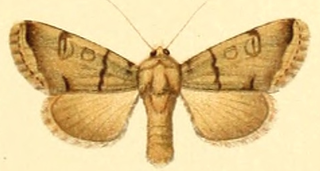Related Research Articles

First Communion is a ceremony in some Christian traditions during which a person first receives the Eucharist. It is most common in many parts of the Latin Church tradition of the Catholic Church, Lutheran Church and Anglican Communion. In churches that celebrate First Communion, it typically occurs between the ages of seven and thirteen, often acting as a rite of passage. In other denominations, such as the Methodist Church in India, one's first communion ordinarily follows the reception of confirmation, which occurs after the age of ten; Eastern Orthodox and Oriental Orthodox Christians first receive the sacrament of Holy Communion in infancy, along with Holy Baptism and Chrismation.
Frequent Communion is the Roman Catholic practice of receiving the Eucharist frequently, as opposed to the usual medieval practice of receiving it once or a few times a year, by going to mass on Sundays. Pope Pius X pushed for the practice of frequent communion, relaxing restrictions on reception for the sick and children.
Dypsis singularis is a species of flowering plant in the family Arecaceae. It is found only on Madagascar. It is threatened by habitat loss.

The equatorial greytail is a species of bird in the family Furnariidae. It is found in Ecuador and Peru. Its natural habitat is subtropical or tropical moist montane forest. It is threatened by habitat loss.
Singularis may refer to :
The invincible ignorance fallacy is a deductive fallacy of circularity where the person in question simply refuses to believe the argument, ignoring any evidence given. It is not so much a fallacious tactic in argument as it is a refusal to argue in the proper sense of the word. The method used in this fallacy is either to make assertions with no consideration of objections or to simply dismiss objections by calling them excuses, conjecture, etc. or saying that they are proof of nothing, all without actually demonstrating how the objection fit these terms. It is similar to the ad lapidem fallacy, in which the person rejects all the evidence and logic presented, without providing any evidence or logic that could lead to a different conclusion.

Dichagyris singularis is a moth of the family Noctuidae. It is found from Turkmenistan to south-eastern Turkey, parts of the Middle East, Jordan, Israel, Iran and Afghanistan.
Trematolobelia singularis, the lavaslope false lobelia, is a rare species of flowering plant in the bellflower family. It is endemic to Hawaii, where it is known only from the Koʻolau Range on the island of Oahu. It is threatened by the degradation of its habitat. It is a federally listed endangered species of the United States.

The Protepeolini are a tribe of apid bees. The tribe contains only one genus, Leiopodus.
Invincible ignorance is used in Catholic moral theology to refer to the state of persons who are, through no fault of their own, ignorant of the fact that the Christian message is true. It is the opposite of the term vincible ignorance. The first Pope to use the term officially seems to have been Pope Pius IX in the allocution Singulari Quadam and the encyclicals Singulari Quidem and Quanto Conficiamur Moerore. The term, however, is far older than that. Aquinas, for instance, uses it in his Summa Theologica, and discussion of the concept can be found as far back as Origen.
Copelatus singularis is a species of diving beetle. It is part of the subfamily Copelatinae in the family Dytiscidae. It was described by Bilardo & Rocchi in 1995.

Onciderini is a tribe of longhorn beetles of the subfamily Lamiinae, they are prevalent across Europe in nations such as Turkey, and Finland.

Eunicella singularis, the white gorgonian, is a species of colonial soft coral, a sea fan in the family Gorgoniidae. It is found in the western Mediterranean Sea, Adriatic Sea and Ionian Sea. It was first described in 1791 by the German naturalist Eugenius Johann Christoph Esper.
Plerodia syrinx is a species of beetle in the family Cerambycidae. It was described by Henry Walter Bates in 1865. It is known from Paraguay and Brazil.

Singularis Holdings Limited v Daiwa Capital Markets Europe Limited[2019] UKSC 50 is a judicial decision of Supreme Court of the United Kingdom relating to the duties owed by a bank where a person acting on behalf of a corporate customer of the bank directs the bank to transfer money out of the company's account as part of a fraudulent scheme.

Leiopodus singularis is a species of bee in the family Apidae. It is found in Central America and North America.

Cyanorus singularis is a small proarticulatan, closely related to Spriggina and Marywadea. Its two largest pairs of appendages are located on the anterior part of the body. The anterior part of the body was most likely not segmented. The axial structure of it combines features of the Vendia species and Dickinsonia species. It was found in the Upper Vendian of the White Sea area, Arkhangel'sk Region. It is a White Sea Ediacaran fossil and it became extinct during the Late Precambrian.
Urocopia is a genus of cyclopoid copepods in the family Urocopiidae, the sole genus of the family. There are at least three described species in Urocopia.
Anolis singularis, the Macaya green twig anole or porcupine anole, is a species of lizard in the family Dactyloidae. The species is found in Haiti and the Dominican Republic.
Hibbertia singularis is a species of flowering plant in the family Dilleniaceae and is endemic to New South Wales. It is a small, low-lying shrub with many stems, oblong leaves and single yellow flowers on the ends of main branches, with 22 to 25 stamens around three carpels.
References
- ↑ BioLib.cz - Plerodia singularis. Retrieved on 8 September 2014.